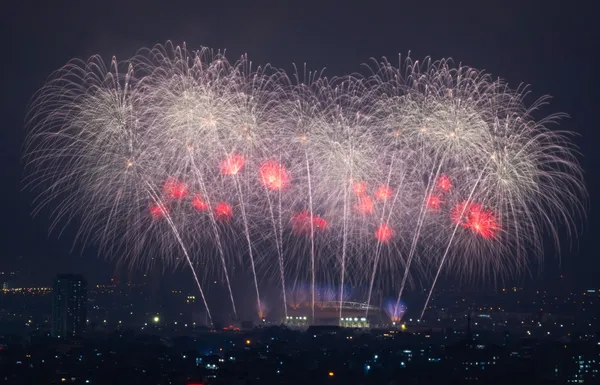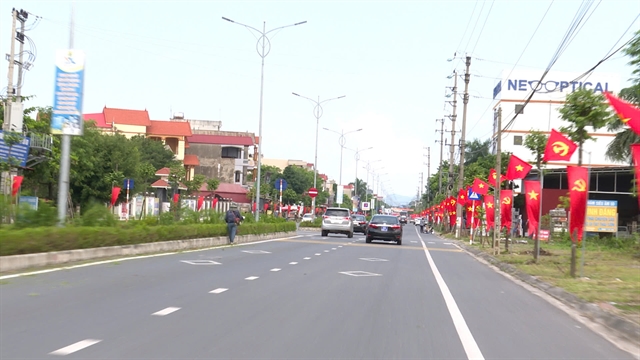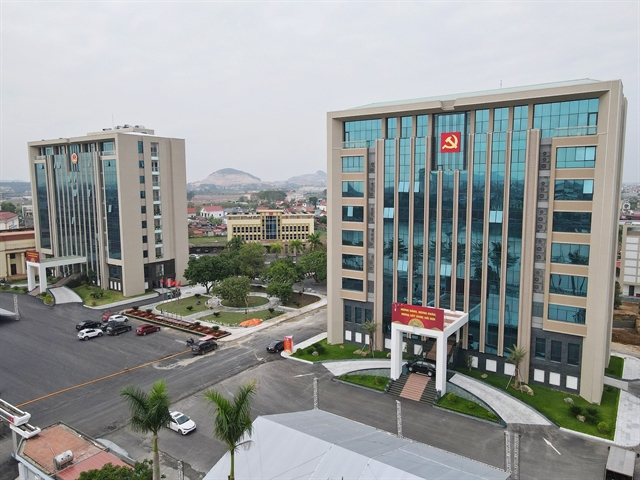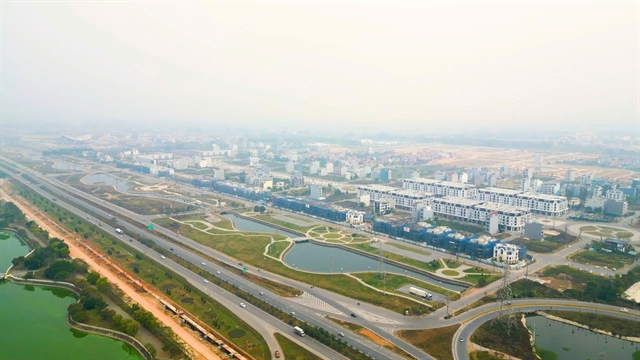 Society
Society

 |
| A street of Bắc Giang City. Photos courtesy of Bắc Giang Province |
BẮC GIANG - Mai Sơn, Acting Chairman of the Bắc Giang Provincial People’s Committee, said the province is focusing on developing synchronised, modern urban infrastructure with an emphasis on "green, sustainable, and smart cities" in the coming period.
Bắc Giang aims to increase urbanisation and urban economic development, mobilising resources to transform Chũ Town into a township and expand Bắc Giang City by merging all of Yên Dũng District into the city. The province plans to develop a decentralised, multi-nodal urban system along major transportation corridors and around industrial, commercial, and service hubs. It will also upgrade key urban infrastructure, including transportation, clean water supply, drainage systems, wastewater treatment, waste management, and cemeteries, to meet the demands of urban expansion and quality improvement.
Investing in sustainable infrastructure
 |
| The public administration headquarters of Việt Yên Township. |
Bắc Giang is prioritising investment in its core urban infrastructure to ensure efficient water supply, drainage, and wastewater treatment. Efforts are being made to protect long-term clean water sources, such as the Cấm Sơn Reservoir and local rivers and lakes, while investing in wastewater and solid waste treatment plants. The province is also allocating land for urban funeral homes to serve its growing population.
Mai Sơn highlighted the importance of smart and compact urban development that conserves land and protects the environment. He stressed the need for well-organised urban greenery, with detailed regulations on tree planting to create unique identities for different areas and streets. Additionally, Bắc Giang aims to attract investments in commercial, healthcare, education, and sports infrastructure to enhance urban quality of life and strengthen architectural and landscape management.
The province is also conducting a comprehensive review of urban drainage plans to address flooding issues and developing province-wide strategies for wastewater collection and treatment, particularly in urban areas, to keep pace with rapid development. Urban planning is being designed with a long-term vision, incorporating distinctive features of each region and ensuring sufficient public amenities, such as housing, parks, and recreational facilities.
Integrated planning and urban expansion
 |
| An aerial view of Bắc Giang City. |
Bắc Giang is aligning urban planning with land-use plans and other relevant strategies to avoid overlaps and inconsistencies. Efforts are being made to mobilise funding for urban development, increase the coverage of detailed planning, and minimise unnecessary adjustments to ensure sustainability.
The province is also working on creating integrated residential and urban areas with comprehensive technical and social infrastructure to avoid fragmented development. Urban land use is capped at 27 per cent of project scale, with public facilities and commercial spaces strategically placed along major roads to serve residents effectively.
Currently, Bắc Giang has 20 urban centres, including one Grade-II city (Bắc Giang City), four Grade-IV towns (Việt Yên, Chũ, Đồi Ngô, Thắng), and 12 Grade-V towns. The province’s urban population has grown from 145,000 in 2010 to 455,300 by the end of 2023, increasing the urbanisation rate from 9.36 per cent to 23.7 per cent.
Bắc Giang has approved 147 urban and residential projects, spanning 2,200 hectares, with a total investment of approximately 33 trillion VND. Notable developments include new urban areas in the southern region of Bắc Giang City and residential projects like Diamond Hill and commercial housing near Ngô Gia Tự Park.
The merger of Yên Dũng District into Bắc Giang City aims to create stronger growth momentum. Yên Dũng authorities are focused on maintaining effective governance during the transition and addressing public concerns to ensure social consensus. The reorganisation will require streamlined operations, with local agencies expected to work extra hours to meet the December 31, 2024 deadline.
By January 1, 2025, Bắc Giang City will officially integrate Yên Dũng District, marking a significant step in the province’s urban and administrative transformation. VNS




